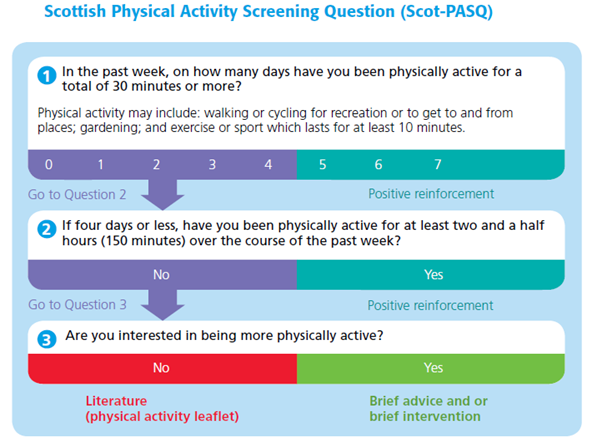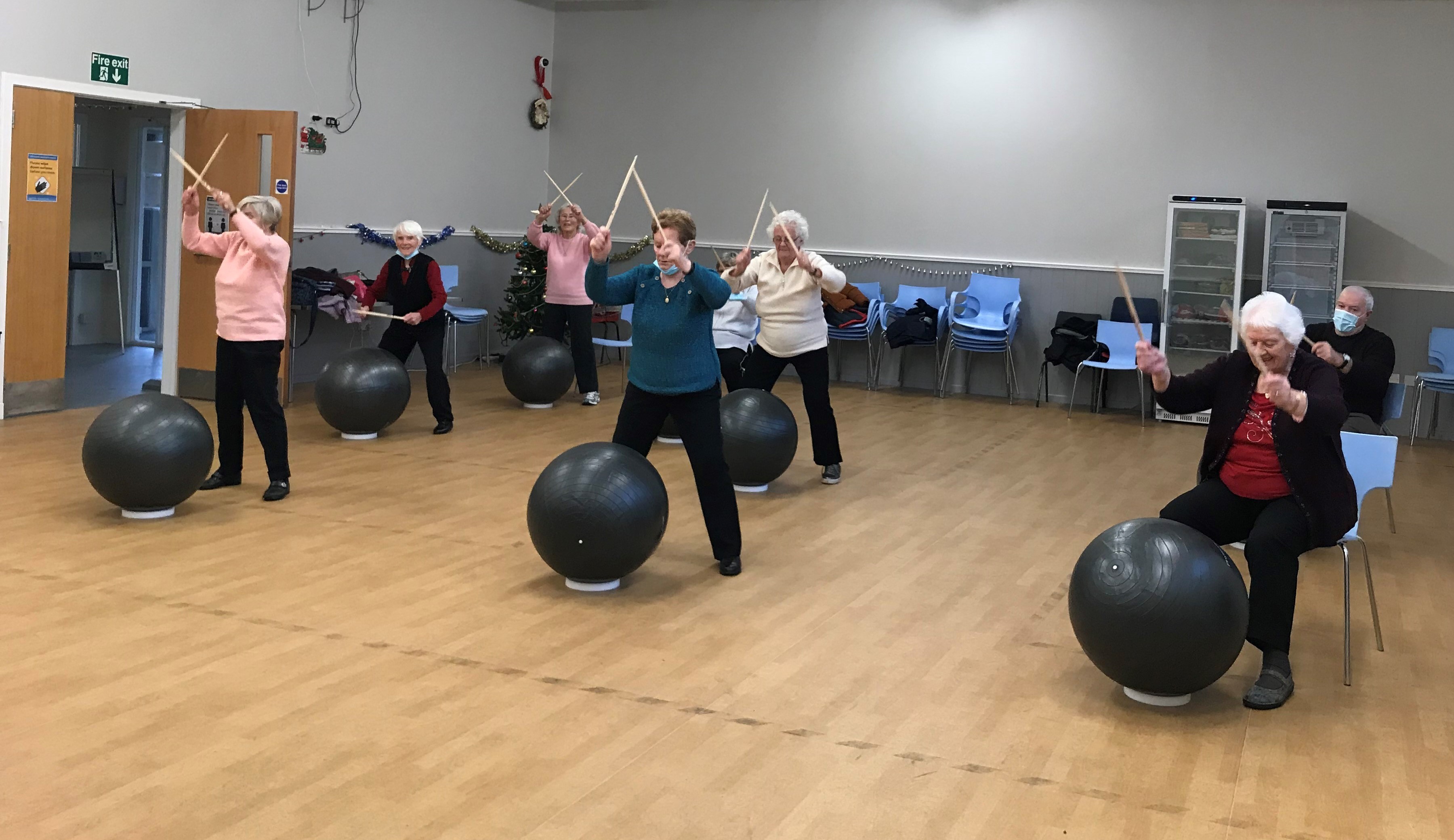Being physically active is one of the very best things we can do for ourselves and patients but is often undervalued as a health promoting activity. Physical activity has been evidenced as being able to reduce the risk of multiple long term conditions, such as, Type 2 Diabetes, Cardiovascular Disease, various Cancers, falls, anxiety and depression, as well as supports the treatment and recovery of such conditions.
Adults should aim for 150min of moderate activity (increased breathing, but able to talk) or 75min of vigorous activity (breathing fast, difficultly talking) each week, or a combination of both! Building strength on at least 2 days per week is also a key part of the physical activity recommendations, with activities such as carrying heavy shopping, yoga and strength training all contributing to this recommendation.
For good physical and mental health, adults should be active everyday and include breaking up of sedentary behaviours. It’s important to remember that being physically active has a range of significant benefits including reducing the risk of disease, managing existing conditions, and developing and maintaining physical and mental function.
Most people acknowledge that physical activity is good for them, however they may not be aware of how much is enough, what counts as activity and where to access support if needed. Overall, supporting our patients to increase their activity levels every day, will contribute to positive physical and mental health benefits. People with long-term conditions are often fearful of worsening their condition or experiencing potentially undesired consequences from physical activity. In fact, when physical activity levels are increased gradually, the risk of serious adverse events is very low. Well informed, person-centred conversations with healthcare professionals can reassure people and further reduce this risk. The benefits outweigh the risk.
Ask
Questions to guide conversation
- How active would you say you are?
- Are you moving regularly throughout the day?
- Do you feel you are as active as you could be?
- What does/would motivate or help you to be more active?
- Do you feel you could factor in some more movement throughout the day?
- Are you aware of the types of activities that might help you to be more active
- Do you know how activity can help you/your condition
- Would you like some help to increase your activity levels
- How do you like to keep yourself busy/on the move?
- Would you be interested in a little bit of help to get you moving more often?
- Are you aware of any local activities that might help you to increase your daily activity?

Assist
In response to the conversational questions, the following information can be suggested to support your patient to increase their activity levels:
- Break up sitting time – don’t sit for long periods of time without standing, stretch, moving about. Why not incorporate some gentle stretches when waiting for the kettle to boil/adverts to finish
- Use active travel – why not walk to the local shops. Getting out for a walk is a great way to clear your head, increase your activity and enjoy the outdoors
- Gardening and household chores can also be part of your plan to move everyday
- Is there anyone else who can support you to be active – perhaps a local club or group might help?
- Taking the stairs instead of the lift, dancing and cycling all count!
- Adults should be aiming for 150mins of moderate intensity activity each week. This can be broken down to 30min each day, or even further into 10min blocks – whatever works best for you
- Some is good, more is better – all physical activity can bring health benefits, including low levels of activity, however the more you do, the more benefits there are. In fact, those doing less than 30min of activity per week, are likely to have the most to gain.
- The Talk Test is a good indication of how hard you are working, if you can increase your breathing but still hold a conversation, you are likely to be moderately active. If talking is difficult you are likely to be working vigorously
- Physical activity benefits can include, better sleep, improved mood and reduced anxiety, as well as better balance, increased energy, maintenance of healthy weight
- It’s never too late to start!
- Make sure it’s fun, if you find an activity you enjoy, you are far more likely to keep it up!
Act
Referrals and/or queries can be made to Leisure Providers: -
Live active Perth - ihutton@liveactive.co.uk
Dundee Leisure and Culture - healthandwellbeing.referrals@dundeecity.gov.uk
Angus Alive - ANGUSalive - Online Referral Form
GOGA does not require a referral but can be accessed via:
